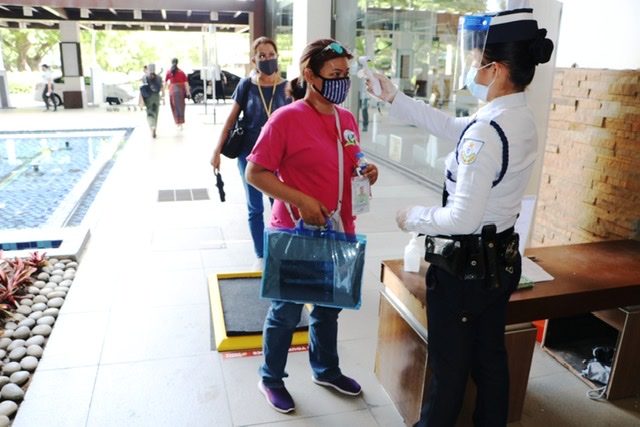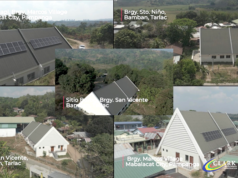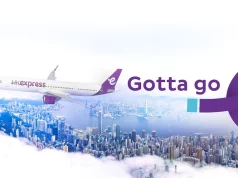Customers line up for temperature scan at the Harbor Point Ayala Mall on Monday, June 1. Photos by Malou Dungog
SUBIC BAY FREEPORT — Access to the Subic Bay Freeport was somewhat relaxed starting Monday as more business establishments resumed operations here under the general community quarantine, but the Subic Bay Metropolitan Authority said strict health and safety measures against Covid-19 will remain in force.
SBMA chair and administrator Wilma T. Eisma said the Subic agency will allow persons with SBMA-issued identification cards or temporary passes to enter and exit the Freeport, as long as their movement is limited to accessing essential goods and services and for work in offices and industries permitted to operate under GCQ.
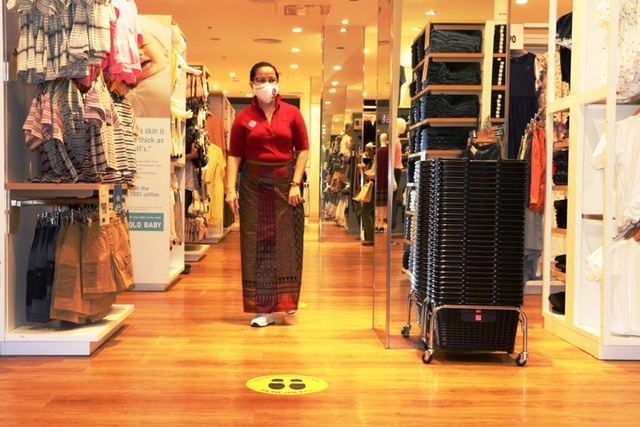
“We have relaxed border restrictions in Subic because of the urgent need to revive our economy, which has also fallen sick under the pandemic. To heal as one, we need to restore economic health, but the Covid-19 threat remains,” Eisma said on Monday.
“There is yet no cure or vaccine, so we need to be more cautious, more safety-conscious than ever before. More people movement also means more chances for the virus to move and spread even faster, so we need to protect our businesses, our families and ourselves,” she added.
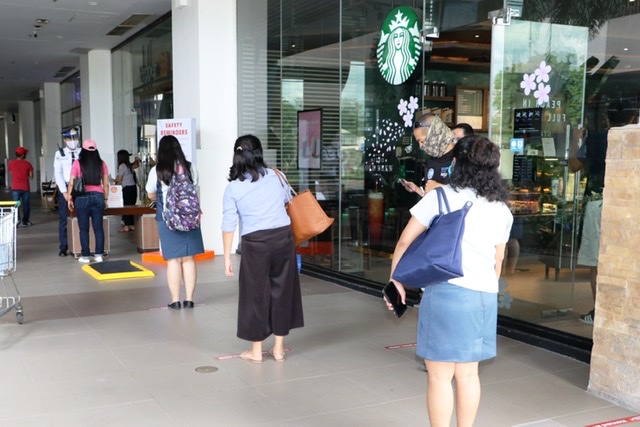
Under GCQ, the SBMA allowed entry and exit to Freeport workers and residents, employees of accredited suppliers and service providers, holders of I.D. cards issued by the inter-agency task force, government officials and frontline personnel, and duly authorized humanitarian assistance actors.
The SBMA also gave access to persons traveling for medical or humanitarian reasons, those going to the airport for travel abroad, overseas Filipinos with confirmed accommodation in freeport hotels, persons transported by the national government, those involved in providing essential goods and services, and delivery personnel bringing goods inside the freeport or for export or import through the Port of Subic.
The Subic agency likewise granted entry but required prior notice or proof of appointment to clients, customers, suppliers, and subcontractors or service providers of Subic establishments or enterprises, as well as to visitors, suppliers, subcontractors or service providers of freeport residents.
The SBMA, however, still required certain persons to stay at home at all times, except when needed to obtain essential goods and services, or to do permitted work. These include persons below 21 years old, those 60 years old and above, persons with immunodeficiency, comorbidities or other health risks, and pregnant women.
To facilitate the entry and exit of workers, residents and other persons allowed inside the freeport, the SBMA designated four gates for their use: Rizal Gate, Kalaklan Gate, and Morong Gate, which shall be open for both pedestrians and vehicles, and Tipo Gate, which shall only allow said authorized persons in vehicles. The Main Gate will be used only by said authorized persons travelling on foot, while the 14thStreet Gate will be open to authorized pedestrians, including those on bicycles or motorcycles, only from 6 a.m. to 9 a.m. Mondays through Saturdays.
On the other hand, the Kalayaan Gate will be for exclusive use of ambulances, fire trucks and law enforcement vehicles responding to actual emergency, vehicles with emergency medical patient on board, and SBMA vehicles transporting employees to and from official duty.
The SBMA guidelines for GCQ also required all persons entering the freeport on foot to wear face mask, pass through disinfection booth and/or foot bath, pass temperature scan, observe social distancing, and present required identification or documents. In addition, those travelling in vehicles are also required to subject themselves and their vehicles to inspection and comply with restrictions on the number of passengers.
Alongside the easing of travel restrictions, Eisma said the SBMA now allowed outdoor non-contact sports and other forms of exercise like walking, jogging, running, biking and skateboarding in residential areas in the freeport, subject to minimum public health standards such as wearing of mask and social distancing. She added that curfew shall remain enforced throughout the entire Subic Bay Freeport from 8 p.m. to 5 a.m., except at the Central Business District where business activities are allowed up to 9p.m., and at SBMA port facilities where operations are permitted 24 hours a day.


